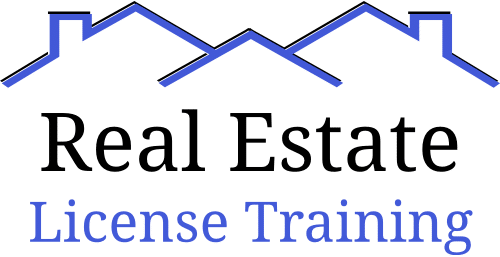Are you a commercial real estate agent?
Do you run an agency that focuses on commercial real estate?
If so, then it’s highly recommended that you use a commercial real estate CRM.
This will make your tasks of handling leads and buyers SO MUCH easier.
But don’t take our word for it.
In this article, we’re going to explain to you why commercial real estate needs a CRM. Plus, we’ll talk about the best commercial real estate CRMs out there.
So are you ready? Let’s begin!
Why Do You Need A Commercial Real Estate CRM?
Having Customer Relationship Management (CRM) software can help commercial real estate agents/agencies take it to the next level. It will help with:
- Marketing
- Sales
- Customer service and retention
Let’s look at these 3 in detail.
Marketing
Having a CRM makes it possible for you to create a marketing calendar integrated with your finances. The platform allows you to easily schedule and manage marketing plans for sales activities.
It’s also easier to organize information. Some details play a vital role in marketing — such as customer qualities, which clarifies market segmentation.
Understanding your market allows for more targeted campaigns. It increases the likelihood of higher productivity and conversion rates while lowering implementation costs.
Sales
Whether you’re a single agent or a small or medium-sized agency, investing in a CRM allows you to generate valid leads quickly. This is because you can set your CRM to remind you to do follow-ups, increasing the probability of converting prospects to actual clients.
What’s more, it allows you to manage communication channels within your sales process. It can range from sending quotes, updates on milestones completion, maintenance-related news, or demand letters for payment.
Your working relationship may be affected if these aren’t released on time since they contain sensitive information. The same may happen if you send the communication multiple times when it’s unnecessary.
Customer Service and Retention
It’s always better to have customers, clients, and tenants who are as invested in you as you are in them. One way to ensure this is to develop a strong relationship with them.
You can use data tracked by your CRM to customize your interactions with them. With everything going digital, maintaining solid connections is vital.
It can be as simple as remembering memorable occasions as birthdays or business anniversaries to sharing referral schemes to grow the business. Remember, your customers won’t care about you unless they know you care about them.
The Best CRMs for Commercial Real Estate
Looking for a CRM for commercial real estate?
To help you narrow down your choices, here are the most recommended CRMs you can look into.
Salesforce
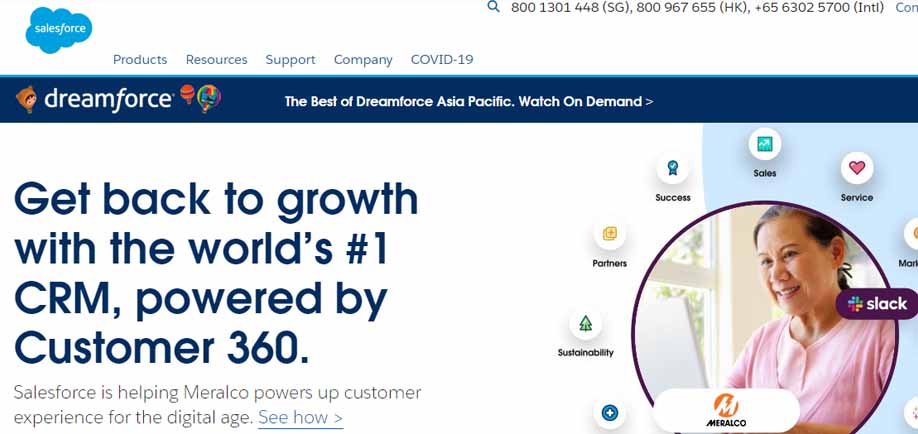
Salesforce is one of the most renowned CRM brands for commercial real estate. Their platform is flexible, making it adaptable to varying needs. They keep their system entirely cloud-based, which means you can access all the information you need regardless of your location.
In commercial real estate, the ideal CRM platform allows you to build better client relationships while giving you access to valuable market data you can share with your investors. Salesforce provides both.
Hubspot
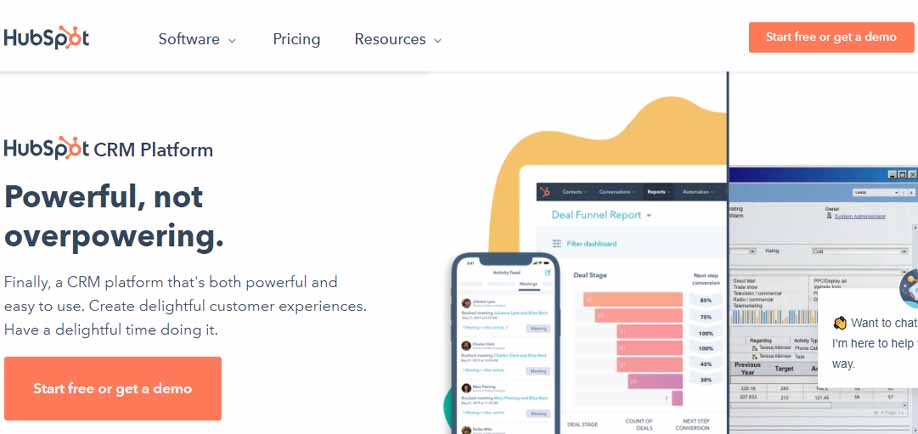
If you’re looking for an all-in-one platform with extensive features, you may want to consider Hubspot. It contains tools and integrations in several areas, such as sales, marketing, content management, and customer service.
Not only does Hubspot allow you to measure your sales team’s productivity, but it can also help you forecast revenue and generate reports on revenue sources. If you want a lot of data insight, you can maximize their features that allow web analytics, landing pages, and search engine optimization.
You can even opt to start with a free account — just because you’re not paying for a subscription doesn’t mean you can’t access some of Hubspot’s advanced features. Admittedly, you can’t use everything, but then again, you’re not paying for anything. It’s a good deal overall.
Apptivo
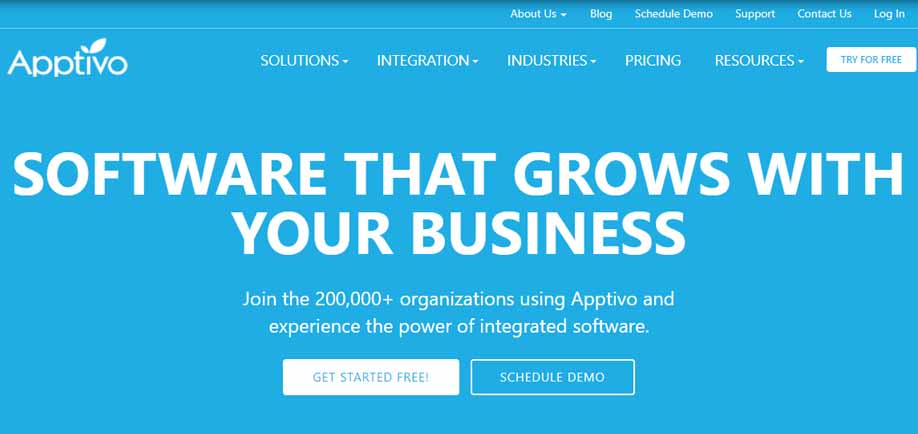
One reason why commercial real estate professionals find Apptivo attractive is the number of integrations they have. They provide a CRM solution that allows you to access more than 50 different applications from a single portal. If convenience is a primary consideration for you, look no further.
Apptivo’s CRM offers vast customization options and excellent customer support. You can adjust your homepage to align with your calendar and task list. It then provides you with a task view that shows which activities are upcoming, overdue, or completed.
In case you run into any trouble with their system, Apptivo has a customer service team available all day, every day.
If, however, you’re looking for a CRM that has extensive integration services, you may be better off choosing one of the other CRMs on our list.
Apto
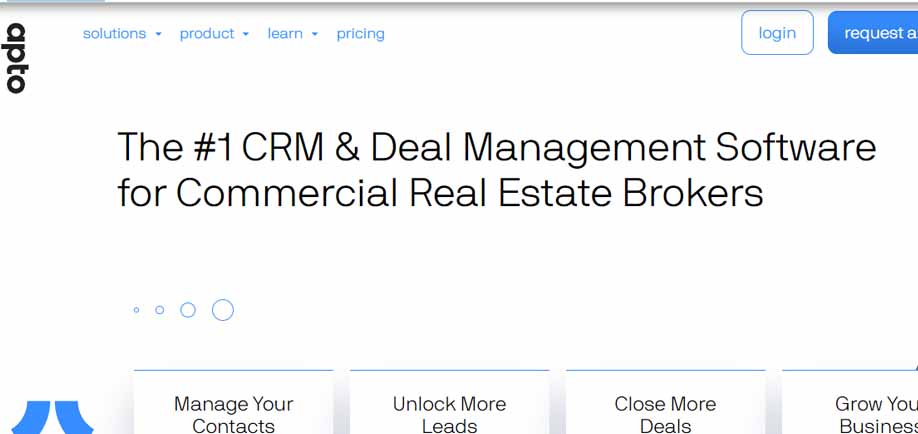
Various CRMs offer different perks. If you require advanced data, Apto may be the best option for you. Apto quickly rose to fame because of its ‘built by a broker, for brokers’ approach.
Their platform has built-in access to national property data, which means you won’t need to spend more to secure information from other sources. You and your team can access everything from a single, centralized source.
What makes them unique is that it’s established on a salesforce.com platform. This means your subscription comes with a salesforce license, but you can customize your system fully for commercial real estate brokers. It’s this feature that allows you to manage a deal’s entire lifecycle in a single platform.
Chime
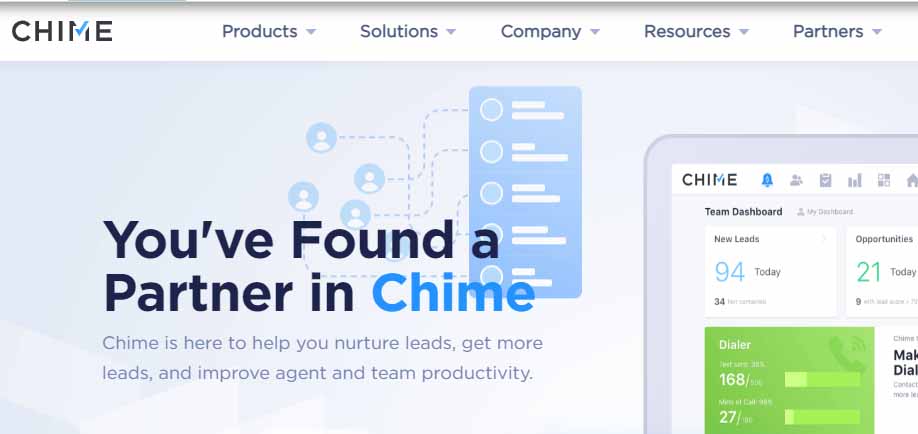
Small to medium-sized agencies can benefit the most from Chime since they were the target market when designing the software. Chime’s CRM allows you to use AI-assisted advertising, which can do wonders to give your brand the boost it needs in your chosen market.
You also get a customizable Internet Data Exchange (IDX) website. It means your clients can browse through commercial properties and communicate through its live messenger.
One thing you’ll have to take into consideration is how much it costs. Regardless of which plan you choose, Chime may be more expensive compared to other CRM options. If budget is a primary consideration, you may want to explore other platforms.
Conclusion
Yes, having a CRM might cost you some money. But in commercial real estate, it is a worthy investment. Whether you are handling multi-commercial properties, retail, or others, the benefits outweigh the drawbacks.
Remember, the world of real estate is constantly changing, so agents/agencies should be able to keep up.
Having a Customer Relationship Management software allows you to take your client engagements — and thus your business — forward into the future.
Choose any of the CRMs we recommended and you’ll be in great hands!
